The Islamic world of today needs many Voltaires to leave behind its ignorance, backwardness, and sectarian battles that are tearing it up. Change in women’s status, an injurious byproduct of the Biblical origin — the formula is mine, not Voltaire’s — constitutes an indispensable instrument for any modernizing project, and some recent steps in the good direction must be encouraged. But, besides the radical Voltaire in his battle against intolerance, there is also much to learn from the Voltaire who endeavored to pragmatically analyze the diversity and antinomies of Muslim societies of his century, no matter how different they are from those of the new millennium.
Juan Goytisolo
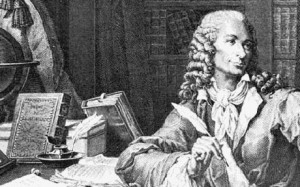 In their vehement prosecution of Islam and the state of legal inferiority and submission of women that prevails in a majority of Muslim countries, Taslima Nasreen, Ayaan Hirsi Ali, and other emancipated women of their religious creed have invoked and repeatedly invoke the name of the author of Candide: “Permit us a Voltaire. . . . Let us allow the Voltaires of our time to work in a safe environment on the development of an epoch of enlightenment for Islam.”
In their vehement prosecution of Islam and the state of legal inferiority and submission of women that prevails in a majority of Muslim countries, Taslima Nasreen, Ayaan Hirsi Ali, and other emancipated women of their religious creed have invoked and repeatedly invoke the name of the author of Candide: “Permit us a Voltaire. . . . Let us allow the Voltaires of our time to work in a safe environment on the development of an epoch of enlightenment for Islam.”
The call is in general terms just and merits our support, but it demands a series of qualifications, not only for the variety of existing situations in the Muslim world, but also for the multiplicity of positions, often contradictory, that Voltaire takes on the subject. To reduce his vast oeuvre to the tragedy Mahomet or Fanaticism, written in 1739 and premiered at the Comédie Française in 1742, is tantamount to limiting it to a very brief period of his literary and philosophical work. A perusal of his almost boundless Complete Works shows us that the “patriarch of Ferney” and friend of the potentates of this world, like Frederick II of Prussia and Catherine the Great, did not stop expounding his ideas, opinions, and feelings about those whom he called “Mohammedans” — an erroneous denomination, but common in his time — in essays, Encyclopedia entries, personal notebooks, correspondence, novels, and theatrical works. If my math doesn’t fail me, he did so in more than some thirty texts — as Etiemble says, “in his adulthood and old age, Voltaire did not stop inquiring [on the prophet and his religion] with avidity that is not incompatible with discernment.”
Faced with the impossibility of summarizing here such a mass of documents in which the author reiterates with new words what he already said, modifies it, and, quite often, contradicts it, I have turned to the excellent book by Djavâd Hadidi, Voltaire et l’Islam, published in 1974 by Publications orientalistes de France, which, lamentably, still has not been translated into Spanish.
From the time of the unstoppable expansion of the Ottoman Empire over the Balkans and North Africa — especially after the fall of Constantinople and attempt to seize Rome — the interest of French chroniclers for the Crusades and the presence of the Saracens in the Iberian Peninsula yielded an increasing fascination — mixed with envy and fear — with the Turks. Until the sixteenth century, the vision of Muhammad and Muslims corresponded with the legends forged in the call for Reconquista, whose mythical and extravagant content Edward Said analyzed in Orientalism. This literature of religious and militant nature, to which the young Voltaire had access through his reading of Buffier, Maracci, and Bossuet, was supplanted by that of travelers to the new Mecca of the Bosporus. The mass of observations, data, and commentaries referring to the “capital enemy of Christianity” created a veritable pro-Turkish pressure group, composed mostly of Huguenots and Lutherans: Guillaume Postel, Philippe de Fresne-Canay, Tavernier, Chardin, D’Hebertot, Tournefort, et cetera, authors whom I read attentively in the preparatory phase of Estambul Otomano [Ottoman Istanbul] (and to them it would be necessary to add the father of the extraordinary Viaje de Turquía [Turkish Journey], probably the Spanish Protestant Juan de Ulloa, judged and reconciled in the auto de fe of Valladolid in 1554).
Although by the time when he composed the tragedy, Voltaire already professed his deist doctrine — that of a “natural religion” uncorrupted by any class of precepts or dogmas — he had yet to consider the knowledge contributed by the ideological current favorable to the Ottomans who contradicted the crude fables and inventions of the devotional tradition. In Mahomet or Fanaticism, his portrait of the prophet as an exalted and ambitious man well acquainted with the mechanisms of the human soul favorable to the attainment of his aims goes accompanied by epithets that denigrate his character and false miracles. In fact, if we read the text carefully, the attack on Muhammad conceals another one: the one aimed at the Messiah of Christians and Biblical prophets. A good part of the Parisian public understood it thus: the Jansenists felt themselves alluded to and attacked the work.
If we follow later writings chronologically, from Sottisier (Folly or Repertoire of Nonsense, undoubtedly a source of Flaubert’s Dictionary of Received Ideas) to Essay on Customs, dated 1756, we can see the central themes of Voltaire — hatred of fanaticism, refutation of revealed religions, denunciation of the alliance of celestial and earthly interests to press the excitable toward war — take shape in parallel to a deepening of his knowledge of Islam and the Ottomans, fruit of his friendship with Boulainvilliers and his reading of the English translation of the Qur’an. While the criticism of Jesus, labeled fanatical and alienated in his Philosophical Letters, is accentuated, his vision of Muhammad is softened to the point of granting him qualities of justice and resilience: “The legislator of the Muslims, a terrible and powerful man, established his dogmas with his valor and arms; yet, his religion became benign and tolerant. The divine founder of Christianity, living in humility and peace, preached forgiveness of outrages; and his holy and mild religion was turned, by our rages, into the most intolerant and barbarous of all” (Essay on Customs, Chapter VI). His already established, albeit variable and mercurial, admiration for the Ottomans played a role in the change made in the interval. The evocation of inquisitorial bonfires of Portuguese Jews in Candide, in contrast to the humorous adventures of the protagonist in the style of the Great Gentleman, as well as the adventures of Scarmentado, hero of his delicious novel Zadig, over the Sultan’s territories, is ascribed to the pro-Turkish tradition of Huguenots, so much so that Voltaire was branded by his adversaries as “patriarch in petto [in the breast] of Constantinople.” In his Treatise on Tolerance — written as a result of the execution of several free-thinkers like Calas and the chevalier of La Barre, whose statue commemorative of his youthful revolt Jean Genet showed me in Abbeville — Voltaire launches an eloquent defense of the Turk: “The Great Lord peacefully governs twenty peoples of different religions; two hundred thousand Greeks live peacefully in Constantinople; the Mufti in person names the Greek patriarch and presents him to the emperor ” (sic), and the empire, he adds, “is full of Jacobites, Nestorians, and monotheists.” Internal wars among Christians — like those that are tearing up the Islamic world today — arouse his indignation against fanaticism, responsible, he says, for all evils of the world. Years later, in “The Profession of Deists,” he will condemn that, while Christians on the shores of the Bosporus parade their God freely in the streets, in Europe “any Calvinist preacher is condemned to the gallows or the wheel, and anyone who listens to him, to the galleys.” To that, Voltaire adds: “Oh nations, compare and judge.”
The coexistence of different creeds corresponded to the deism of the philosopher — which has nothing to do, let us not forget it, with the atheism of Diderot — and to his profound conviction, which today we would call multiculturalist, that tolerance favors the interchange of ideas over beliefs and, as Hadidi points out, that it foments moral and material progress, while maintaining peace and prosperity within states. But, in his enthusiasm of the moment for the Ottoman model, Voltaire arrives at a surprising defense of polygamy, “useful to society and propagation” (of the species), since “the time lost by pregnancies, diapers, indispositions typical of women, seems to demand that this lapse be compensated”(!). More disturbing still: in his ironically titled article “Wives, Submit Yourselves to Your Own Husbands,” the author admired by Ayaan Hirsi Ali and other feminists, perhaps without them having read him thoroughly, not only thinks that Muhammad was more generous toward women than David, Solomon, and those who justified them a posteriori as the holy Fathers of the Church — which is true up to a certain point — but also, and in contradiction to Verse 38 of the “Sura of Women” of the Qur’an, denies that Muslim men have authority over them and demand obedience of them, obedience that certainly, adds Voltaire, Saint Paul commanded.
As we can see, throughout his vast and often admirable work, Voltaire errs, rectifies, contradicts himself. His hatred of the figure of Jesus diminishes as he enters his old age. His appreciation of Muhammad, as the founder of “a wise, severe, chaste, and humane religion,” does not stop him from persistently rejecting this figure. The immensity of Voltairean doctrinal corpus contains an infinity of facets, and it lends itself to contradictory readings. The author of Zadig and Candide — in whose rereading I never cease to take delight — moreover suffered from the turbulences of ambition and its corollary adulation for the monarchs who protected him and with whom he corresponded with ease. For them, Frederick II of Prussia and the Russian Czarina, he planned a crusade against the Ottomans he admired, with a view to undoing the “usurpers” of the throne of the Constantines and the Marcus Aureliuses, that is to say, the Sultan and the Pope. But these errors and caprices are worth little in contrast to his radical condemnation of fanaticism and any dogmatic belief.
Returning to the beginning: the Islamic world of 2006 needs many Voltaires to leave behind its ignorance, backwardness, and sectarian battles that are tearing it up. Change in women’s status, an injurious byproduct of the Biblical origin — the formula is mine, not Voltaire’s — constitutes an indispensable instrument for any modernizing project, and some recent steps in the good direction must be encouraged. But, besides the radical Voltaire in his battle against intolerance, there is also much to learn from the Voltaire who endeavored to pragmatically analyze the diversity and antinomies of Muslim societies of his century, no matter how different they are from those of the new millennium. Nothing worse for our future than to resort, like the extreme doctrinaires of today, to the old spirit of the Crusades.
Juan Goytisolo is a novelist and essayist. This article was published in El País on 4 May 2006. Translation by Yoshie Furuhashi.


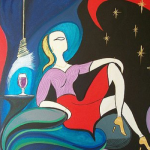

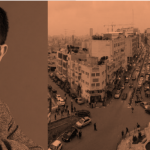
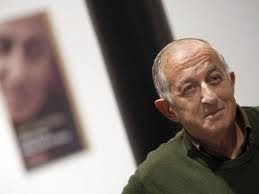
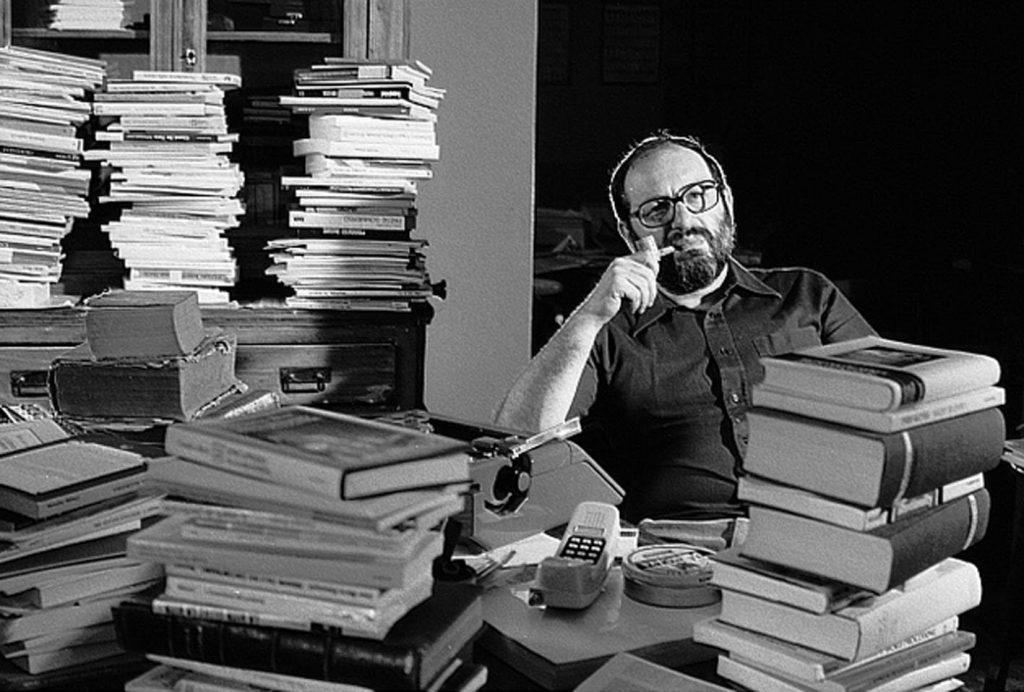
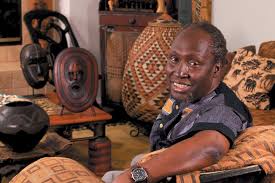
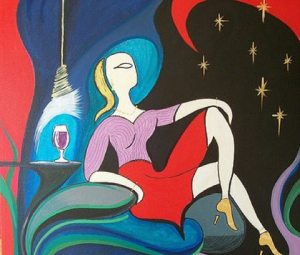

A Moment in Ramallah / John Berger
Orientalism is a cultural and a political fact / Edward Said
Befriending Edward Said